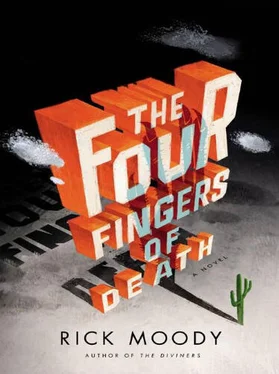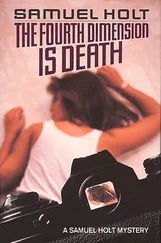“Your philosophy sounds somewhat French . Do you have an interest in French or francophone cultures?”
“You kidding me? They were the colonizers of many African countries, and they enabled a lot of wholesale slaughter of my fellows. In the Congo, for example. They thought they were better than the people they conquered because they ate unpasteurized cheese. French culture, you kidding? You look at the great French thinkers, a lot of them weren’t even French, like what’s his name, the Algerian guy. He was a Sephardic Jew who did most of his best work in the United States. France always wants it both ways, marriage and mistress, Fascist government and French Revolution. Still, the French thinkers of the twenty-first century, at least from what I’ve read, they’re all in exile, because of the French policy toward its Muslim population. The French are star-crossed, they are destroying themselves, they have forgotten what was good about being French, the values of the revolution, the nouvelle vague, Rabelais, that kind of thing.”
Morton noticed that Koo seemed to take umbrage at some of this speech. His scientific detachment was failing. But he didn’t really know how to stop now. Upon opening his mouth, he couldn’t stop. It didn’t occur to him that not all the things that could be said needed to be said. Koo, who had wound himself into a position in his chair — arms folded, legs crossed over each other — that didn’t look comfortable, whispered one more question, and if Morton didn’t know any better, he would almost have said that Koo was going to weep as he uttered it.
“What are your feelings on institutionalized religion?”
Morton sensed a layer of inquiry whose purpose was not apparent to him, and rather than leap into it with his true feelings, which were that all the religious people should be rooted out of the general population and sent to an isolated countryside encampment where they wouldn’t be able to harm anyone, he sensed that it might be worth trying to moderate his argument just a little bit.
“As I have said, and even written in some of my notes,” Morton began, popping a last green grape, swathed in green Jell-O chunks, into his mouth and ruminating, “God is someone who has yet to introduce himself to me. And if he has yet to introduce himself to me, how is it that I am meant to prepare myself for his advent? Is his kingdom really at hand , based on the experiences of my life? Additionally, as a so-called animal, I’m concerned that the religions don’t address themselves sufficiently to the needs of nonhumans like me. That said”—and here Morton believed he was attempting to toss a bone to the Korean medical researcher—“what you see rapidly being wiped out in the current century, in the lawless and totalitarian Sino-Indian Economic Compact, is gentleness in the world. Humankind has held up gentleness as one of its highest aims, and yet it has systematically wiped out gentleness wherever it has appeared, in Tibet, in the Amazon, in the wildlife refuges of the African continent. The religions you speak of seem to be the one place where remedial gentleness can be taught, and yet. I would like some lessons in that gentleness, if you are able to provide them. Maybe you can have some divinity student in here a couple days a week to explain to me what he believes in. I’m especially interested in Saint Francis of Assisi, around whom the animals gathered. When everything has been destroyed by government and institutional religion, there will probably be one guy wearing a cloak and carrying a book, and whether or not I believe in religion, that will be the guy I want to talk to, at least for an afternoon or so.”
Koo had already risen from his seat as Morton was pronouncing the last of his speech, and he could be seen delicately wiping at one eye as the chimpanzee spoke, though for what reason was unclear. And at that point it became evident the interview, abruptly, was over. Morton realized, that is, that he had somehow provided unhelpful answers to many of the questions, though what the right answers were was a mystery to him. As swiftly as the conversation was ended, when Koo told Noelle that she could shut off the camera, so was begun the arrangement of the afternoon drive , which Koo agreed to, as a man of his word.
And so all at once, because why belabor the preparations in this account, Morton was outside! All at once: what was inside was not the totality of Morton’s life but was simply a characteristic of a former time in his life. All at once, there was an outside , and if outside was not what he imagined, if he did not have some memory lurking in him of what the outdoors should look like when he inhabited it (an idea that he got from his ancestral, mitochondrial self), if he did not have an idea of it from seeing it in films or through the reinforced windows of his cell, it was no less glorious and no less perfect in the beholding than in his imagination. In fact, the outdoors exceeded his imagination! They gave him a baseball cap, to shield him from the sun, and he attempted to wear Noelle’s sunglasses, though whether this was for him or for whatever humans he might encounter on his first drive through the city of Rio Blanco, he didn’t know, and he didn’t care. When the glasses fell into the foot well of the automobile in which he rode, there in the backseat, he didn’t care, because the window was rolled down , despite the temperatures, nearing one hundred and fifteen (he heard Dr. Koo say), and they sped through the stoplights of the thoroughfare, and what Morton noticed was how many things there were that caught his eye, how reliable was the velocity of contemporary life, and how sad it was. It was sad! There were all manner of wanderers in contemporary life, dressed in privation, come from other places and unable to return there, walking here and there, looking for what? Looking for what lost thing? For the notion of a life that wasn’t lost? They were going in and out of some beleaguered franchise restaurant, Morton thought, to eat some chemically enhanced carbohydrate, and then back out into the heat, to vomit, and then to go drink some more; all was decay, all was decline and fall, but rendered in the pale colors of the desert, which were orange and rose and bleached white and palest green, and everything was scorched by the glorious winds, which carried forth the flame that devoured the region but which also made it feel somehow romantic and perfect, especially when they arrived at last at the interstate , which no longer carried the great snarl of automobiles that it had in the last century (or so Morton was told), because no one could afford to field a fleet of cars anymore, and so when the laboratory sport utility vehicle, modeled on one that had been used by the troops in the Central Asian conflict, hit the interstate, there was nothing that Morton could think of but that movement was itself the source of romance , and freedom was velocity and movement, and freedom, therefore, made possible romance , and that animals in captivity could perhaps be sexual, could perform sexually, having few other activities, but they couldn’t feel desire, because desire was part of a spectrum of feelings, of kinds of self-knowledge that were associated with freedom, that took place among palm trees and rock formations and in the presence of mountain lions; he could feel the mountain lions out there, in their miles and miles of range, and he knew that he could feel them when the human animals no longer could; and yet chief among the possibilities of liberty, in this resplendent desert, with its great cloudless lid of brightest periwinkle, was failure, and that was what made desire possible, the failure implicit in freedom, and it was this that made him want to reach up to touch the shoulder of Noelle in the front passenger seat, the sense that he was going to fail, that his ugliness was unsurpassed, his ugliness, his total inability to understand the clothing and the cooked food, and the repression of glandular needs and wants, he was going to fail; he had come to this point, this plateau of human accomplishment where no experimental animal had ever come, where he could convince his jailers not only to release him but to understand that he was in some way something that they could never be, and this only meant that his failure was that much more undeniable, because he knew what he had to lose now, and that time when he was just another chimp, that was the one perfect time, because freedom was savage, cruel, and he reached up to the front seat, around the headrest, bested by the limitlessness of the desert, and he set his hand on the shoulder of Noelle, and she looked back at Morton, the chimpanzee, and she smiled, and he knew that that smile was intended for him and him alone, and he knew that that smile should have been enough, but it wasn’t enough, and he knew that Noelle wasn’t enough to save him now, and before him he saw the opportunities ahead of him, the dead-end jobs he would try to secure, going into the office to explain to the people in human resources, or whatever you called them and their department, that he wasn’t going to be able to type very fast, because his fingers were too big and clumsy, and then he was going to go to the fast-food restaurant, and he was going to have to point out that he wasn’t able to operate the cash register, which was the job you took when you were unable to perform any other job, the job where you handled the money , and he wasn’t going to be able to handle the money, because his hands were not well enough coordinated to press the buttons properly, and he couldn’t get hold of the small denominations of coinage, and so he would not be able to hold that job, and the public-relations job that involved selling legislators of the Southwest on tax credits for Chinese and Indian manufacturers that wanted to move here, he wasn’t going to be able to take that job, because he didn’t look like the legislators of the Southwest, who would be afraid, even terrified, at the recognition that the lobbyist who was approaching them was a chimpanzee , not a person at all, though he was able to talk like a person (sort of), and so he wasn’t going to be able to take that job, and so unless they were going to be willing to hire him to do some kind of office work at the laboratory at the medical school of URB, there was no job that he was going to be fit for, but it was unlikely that the state apparatus was going to catch him in its tattered safety net, and so what was he going to do, was he going to love this woman? Was he going to content himself with love and give up on work?
Читать дальше












